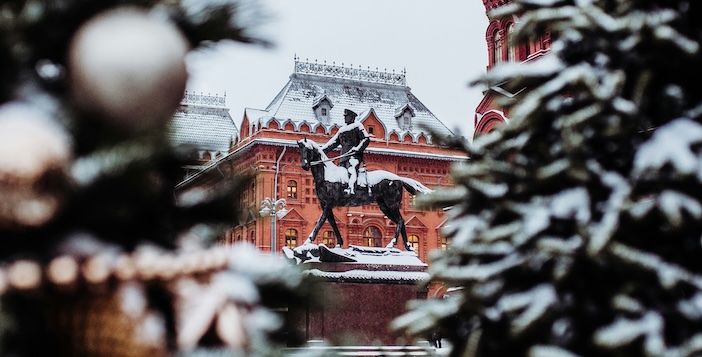Given how much has been written about Putin’s Russia and the background to the invasion of Ukraine in February 2022 it might seem a little overblown to recommend yet another book, but with the third anniversary of the war upon us, and the laboured negotiations around its settlement, it might be considered prudent to evaluate things once more. And, certainly, My Russia, War or Peace? is especially thought provoking, not least because of the background of its author Mikhail Shishkin.
Half Russian and half Ukrainian by birth – but Russian by identity – he is regarded by many as the outstanding novelist of his generation and is the only author to win all three of Russia’s major literary prizes. He is also no Putin stooge or apologist and has been living in exile in Switzerland since the late 1990s. My Russia, War or Peace? is not a dry and measured academic tome but a passionate analysis, part polemical and occasionally autobiographical, of why the country he loves seems fated to end up run by tyrannies of one kind or another. It is above all an unsparing critique of Russia’s history as well as a sustained assault on the Russia of Putin and the war in Ukraine.
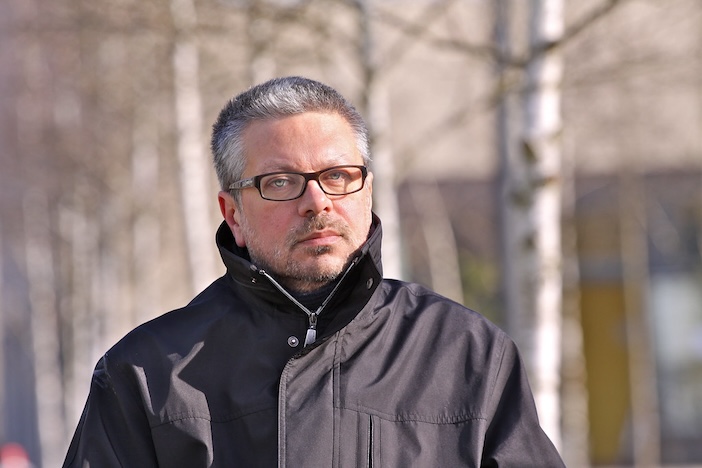
Mikhail Shishkin photo by Jürg Vollmer (courtesy of flickr)
In writing this book Shishkin has three main objectives. His first is to open the eyes of the West to the realities of Russia, past and present, and, in doing so, to disabuse Western eyes of the over-romantic picture they have often had, largely driven by the impact of the richness of Russian literary, musical and artistic culture; also, to underline the extent to which so many words in Russia have different meanings and connotations to those they have in the West. His second is to explain how and why Russia has never managed to establish a genuine democracy. His third is to ensure his readers understand that Putin is a symptom of what he describes as the Russian ‘disease’ and that this disease will never be overcome without wholescale de-Putinisation. Putin’s longevity may be getting shorter but, having read Shishkin’s book, I fear the deep-rooted tentacles of the kleptocratic security state established by Putin will take a very long time to purge. So much of it is embedded, one way or another, in the history and experience of the Russian people.
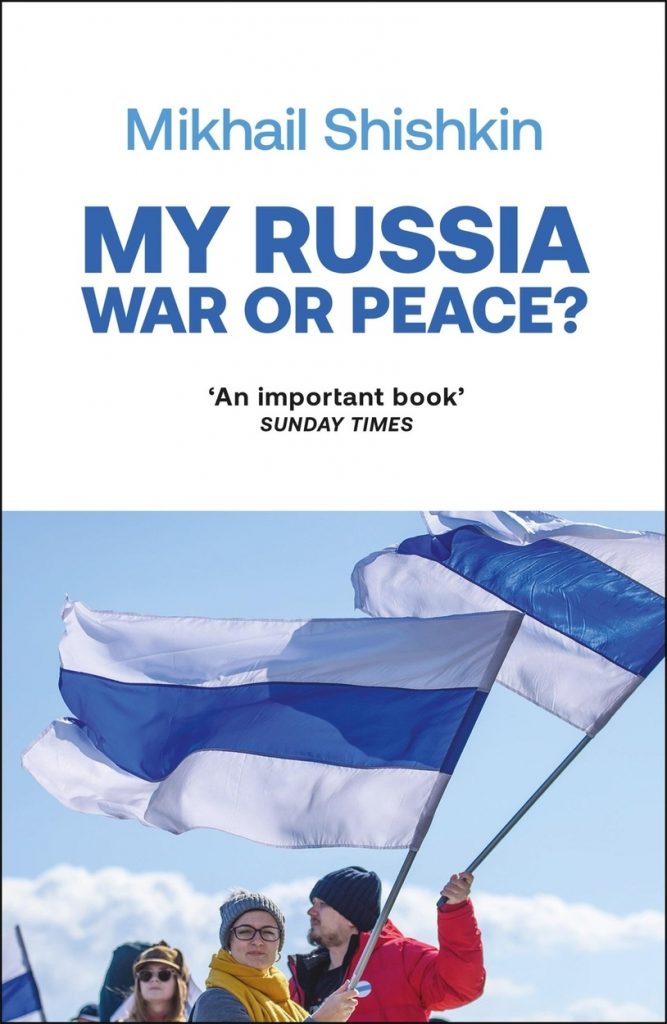 As a professional wordsmith it is no surprise to find that Shishkin pays so much attention to the significance of language. His first chapter is entitled The Paradox of the Lie (the title of an article written by Nicholas Berdyaev in 1939 about life in Stalinist Russia) and dedicated to exposing the impact of tyranny on the language of daily life. Words become the camouflage behind which people hide from reality. For Shishkin this means that in Russia ‘truth is a never-ending lie’.
As a professional wordsmith it is no surprise to find that Shishkin pays so much attention to the significance of language. His first chapter is entitled The Paradox of the Lie (the title of an article written by Nicholas Berdyaev in 1939 about life in Stalinist Russia) and dedicated to exposing the impact of tyranny on the language of daily life. Words become the camouflage behind which people hide from reality. For Shishkin this means that in Russia ‘truth is a never-ending lie’.
There is a long history behind this stark statement. It lies behind the concept of Potemkin Villages with their fake veneer of apparent prosperity hiding the poverty-stricken reality behind. It can also be found in the Russian word vranyo, which describes the situation where a statement that everyone knows to be untrue is treated as though it were true. Vranyo had become so widespread by the mid 19th century that Dostoyevsky even wrote an essay about it entitled Something about Lying. Under the Stalinist dictatorship it was so deeply embedded that it had not only become formulaic but also deeply paranoic. As Solzhenitsyn put it with blistering irony, “The solemn pledge to abstain from telling the truth was called socialist realism.” Shishkin sums it up neatly with a dark and chilling example: while the Gestapo tortured prisoners to get them to tell the truth that they were a communist or foreign agent, the NKVD tortured prisoners to get them to lie, to falsely confess they were a capitalist or a foreign agent.
For Shishkin it is all deeply personal, not least because his mother, a teacher, was confronted every day of her working life with the moral challenge of trying to impart to her pupils the importance of telling the truth, of being honest, yet, at the same time, preparing them to live in a society where the lie was essential for survival. In underlining the importance of the lie for survival Shishkin quotes Nicholas Berdyaev’s potent analysis, “the people live in fear and lies are the weapon with which they defend themselves.” It has become as true in the Russia of Putin as it was in the Russia of Stalin.
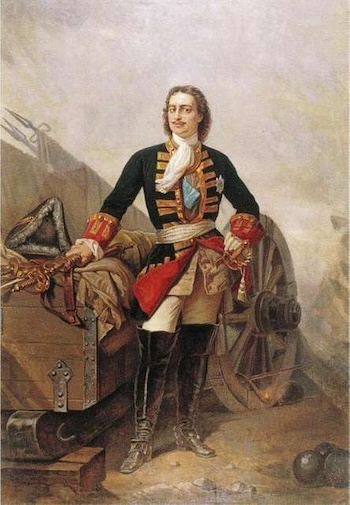
Peter I of Russia (unknown artist)
Peter the Great may have opened a window to the West with his adoption of western technology, but the unintended consequence was, ironically, the emergence of an increasing division within Russia. The Westerners looked admiringly to the increasing liberalism of European culture, while Slavophiles looked inwards to defend holy Russia from the threats, both cultural and physical, coming from the West. The latter was seared on the Russian consciousness by the Napoleonic and Nazi invasions. It is a division that has never been resolved and remains evident in the justifications made by Putin and the organs of the Russian state for the assault on Ukraine and in the emigration of so many westernised young Russians.
Shishkin explains with searing honesty why democracy has proved so difficult to embed in Russia. However brave and eloquent the Navalnys and Nemtsovs, democracy cannot be achieved by lone wolves. There have never been enough Westerners to provide the critical mass of self-confident citizens needed to overcome the power of the authoritatian state. He traces the origin of this from Kievan Rus via Tsarist Russia and Stalinism to its current manifestation under Putin. Essentially, all three manifestations share the same structure: an all-powerful leader served by a group of lieutenants whose wealth and privileges are entirely dependent on their loyalty to the leader and the vagaries of his whim, whether the boyars of early Tsarist Russia, the henchmen of Stalin or the oligarchs of Putin.
As for the great mass of the population they were, and still are, always at the mercy of the state; either as genuine serfs – until the emancipation of 1861 – or as its minions whose status was as dependent on the state as serfs had been on their owners. There may have been a legal code but the rule of law was, in practice, a sham as the application of the law was an instrument of control driven by the whim of the state. Ethnic groups and classes were as vulnerable as individuals. The brutal forced migration of the Chechens to Kazakhstan in 1943 is perhaps the most obvious example of the former. As for the latter, no one put it better than Ilya Ehrenburg when he wrote of the destruction of the kulaks that “not one of them was guilty of anything but they belonged to a class that was guilty of everything.”
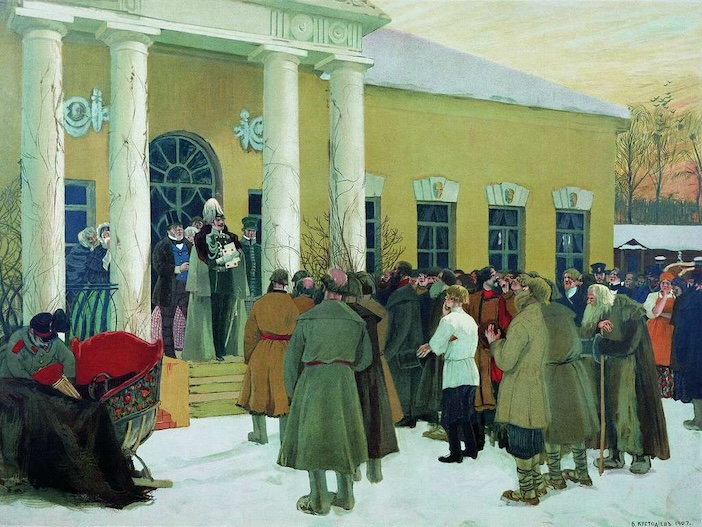
‘Reading of the Manifest (during the liberation of the peasants)’ (1907), by Boris Kustodiev
My Russia, War or Peace? is an enriching, illuminating and sometimes chilling read. Shishkin’s analysis is crystal clear, no more so than when he is explaining the failure of Russia to move to becoming a genuine democracy after the collapse of Soviet communism during the ‘wild west’ years under Yeltsin. Anyone reading this exceptional book will come away with a much deeper understanding of the nature of Russia under Putin. However, I fear that for all Shishkin’s wish for Putinism to be eradicated and a new Russia to arise from the wreckage, it will be a long time coming. Not least because even when Putin leaves the stage, whether by force or at nature’s call, there is no guarantee that he will not just be replaced by another tyrant.
My Russia, War or Peace? by Mikhail Shishkin is available now, published by Quercus Publishing. For more information, please visit www.quercusbooks.co.uk.
Header photo by Aurelien Romain, courtesy of Unsplash

